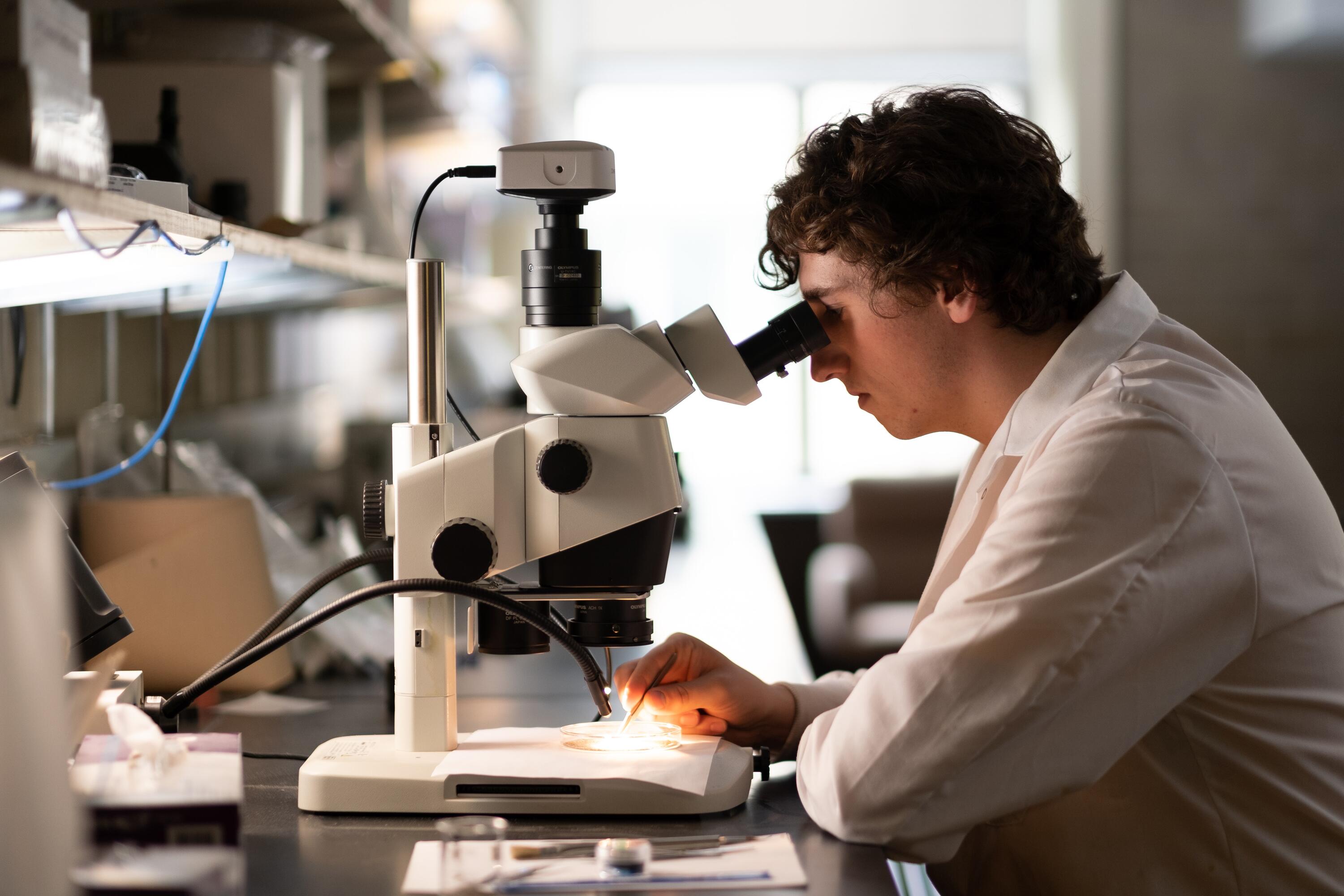
One degree - endless career options
Have you ever asked "what can I do with a science degree?" You're not alone - it's a common question we receive from high school students researching their career goals.
Such a broad question normally gets the less defined answer of "well, it depends..." But depends on what? Let's unpack that answer so that you can be confident that majoring in a science program is the right path for you.
Your career in science depends on three main factors
Science students may have a career goal in mind when they start university, like becoming a doctor, bio-chemist, or geoscientist. If you have a goal, that's great! And if you don't - but just know you enjoyed science in high school and want to continue towards a career in science, that's awesome too. Either way, we recommend you chat with an academic advisor to make sure you're selecting the right courses and making the most of your time at Waterloo.
For many students, three factors influence their career paths:
1 - YOUR SCIENCE MAJOR
Your major will define the courses you take, the number of electives available to you, and how focused or broad your area of study will be. You'll start your major in first year. What you select will also influence your profs, classmates, and advisors.
2 - YOUR EXPERIENCES
Your time in university isn't just lectures - you'll gain experience through areas like our co-op program, participation in clubs or science events, your labs, research/idea opportunities, volunteering, and/or part-time jobs.
3 - YOUR INTERESTS

Your interests will determine your choices - such as the courses you'll take in your electives and the minors you declare. It'll also influence the friends you bond with, how you approach your work, and how you spend your free time.
All about the skills...
With all of these factors at play you'll gain skills that are unique to you. These skills are what'll help solidify the types of careers available to you. Maybe you minored in Biotechnology - opening up positions in microbiology or biomanufacturing. Perhaps you majored in Science and Business - opening up positions in marketing, accounting, or law. Or you volunteered in outreach - opening up positions in education or technical writing. With each new experience and opportunity, you'll open up a world of scientific careers that you may not have even heard about in high school.
And many of the skills you gain within your BSc degree are transferable in a variety of fields beyond science.
SCIENCE SKILLS
- Critical thinking
- Experimental design

- Laboratory methodology
- Time management
- Research procedure
- Problem solving
- Applied data analysis
- Chemical nomenclature
- Modeling of scientific methods
PROFESSIONAL SKILLS
- Creativity
- Qualitative analysis
- Communication
- Leadership
- Project management
- Market analysis
- Independent learning
- Technical writing
- Team work
And it's always changing...
Science is always at the apex of change - because new discoveries are being made every day. These discoveries mean new areas to explore, new products, and new jobs. And world events can shape humanity's need for scientific breakthroughs, such as pandemics, energy issues, resource depletion, or climate change. We'll require skilled and expert scientists who are able to shift quickly as our needs change.
Here at the University of Waterloo, we provide many opportunities to innovate, experiment, and disrupt, so that you gain the skills needed in the career fields of the future. Check out the careers that can shape the future!
How to narrow down your choices
As you can see, having a degree in science means open doors and plenty of opportunity. If you need help narrowing down your choices, we have career advisors who'd be happy to discuss your options and how to showcase your skills and experience in a resume.
The careers of our graduates
Our graduates work in industries all over the world. Below are a variety of examples, and you can also check out our alumni for inspiration.